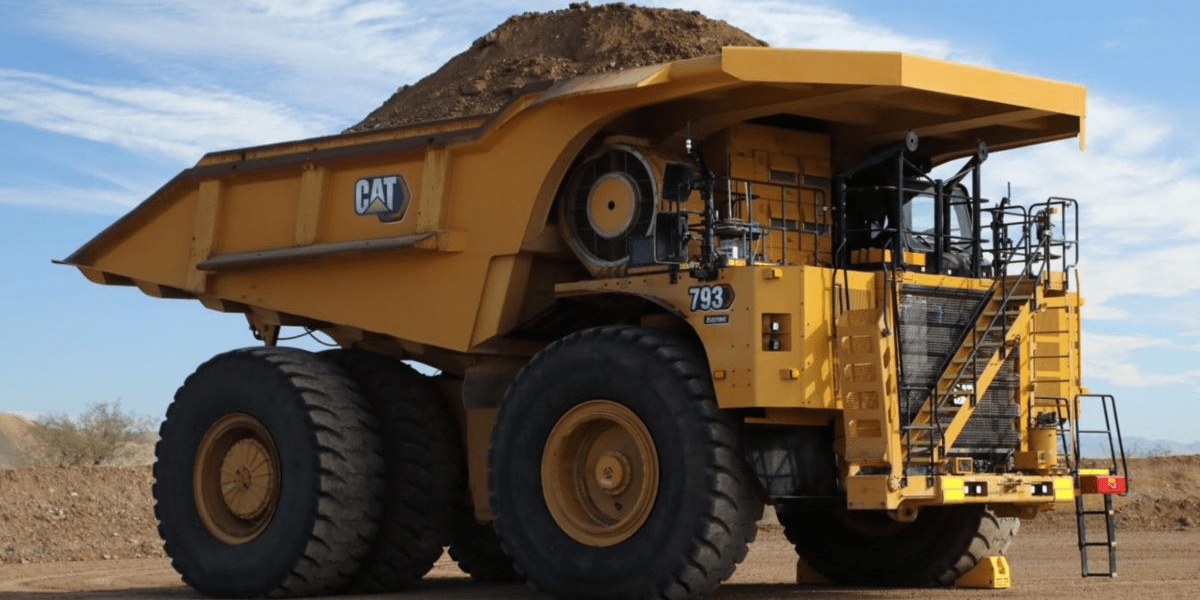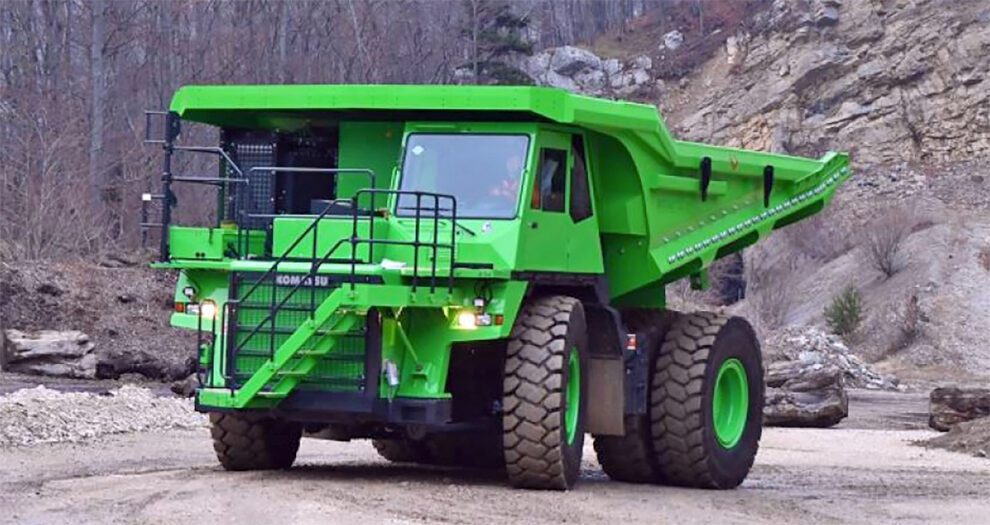Maximizing Efficiency and Sustainability: The Benefits of Electric Dump Trucks in Mining Construction
Update date 1/2/2024The Future of Electric Dump Trucks in Mining Construction ...

Introduction to Electric Dump Trucks in Mining Construction
Electric dump trucks are a revolutionary advancement in the mining construction industry. These cutting-edge vehicles are powered by electric motors, rather than traditional internal combustion engines, making them more efficient and environmentally friendly.
In recent years, there has been a growing emphasis on sustainability and reducing carbon emissions. Electric dump trucks play a crucial role in achieving these goals by eliminating exhaust emissions and reducing the carbon footprint of mining operations.
Furthermore, electric dump trucks offer significant advantages in terms of efficiency and cost savings. With their electric motors, they provide instant torque, allowing for faster acceleration and improved productivity. Additionally, they require less maintenance compared to their diesel counterparts, resulting in reduced downtime and lower operating costs.
Mining construction sites are often located in remote areas, far from conventional fuel sources. Electric dump trucks offer a solution to this challenge with their ability to recharge using renewable energy sources, such as solar or wind power. This enables mining operations to become more self-sufficient and less dependent on external fuel supply chains.
The introduction of electric dump trucks in mining construction marks a turning point in the industry's drive toward a sustainable future. Their ability to reduce carbon emissions, increase efficiency, and operate on renewable energy sources make them a game-changer for mining companies seeking to improve their environmental performance and bottom line.
Benefits of Using Electric Dump Trucks in Mining Construction
Reduced environmental impact: Electric dump trucks offer a more sustainable solution for mining construction operations. By using electricity as their power source, they produce zero exhaust emissions, reducing air pollution and minimizing their carbon footprint. This is particularly important in the mining industry, where emissions from diesel-powered equipment can have significant environmental consequences.
Lower operating costs: Electric dump trucks can lead to substantial cost savings in the long run. While their initial purchase price may be higher than traditional diesel trucks, they have lower fuel and maintenance costs. Electric trucks don't require expensive diesel fuel and have fewer moving parts, resulting in reduced maintenance and repair expenses. Additionally, the use of electricity as an energy source tends to be more stable and less volatile in terms of pricing.
Improved energy efficiency: Electric dump trucks are known for their high energy efficiency compared to their diesel counterparts. With advanced battery technology and regenerative braking systems, electric trucks can recover and reuse energy during braking and downhill descents, effectively conserving energy and extending their operating range. This efficiency can significantly optimize the overall energy consumption of mining construction operations.
Quieter operation: Electric dump trucks produce significantly less noise compared to diesel trucks. This is beneficial for a variety of reasons, including reducing noise pollution in surrounding areas, improving the working environment for operators, and enhancing safety on construction sites by minimizing potential distractions caused by excessive noise.
Enhanced productivity: Electric dump trucks often provide higher torque and faster acceleration compared to diesel trucks. This enables them to operate more efficiently, especially in challenging terrains commonly encountered in mining construction sites. The increased power and agility result in improved hauling and dumping capabilities, increasing productivity and reducing downtime.
Potential for integration with renewable energy sources: Electric dump trucks can easily be integrated into a renewable energy infrastructure. By charging their batteries using renewable energy sources such as solar or wind power, mining operations can further reduce their reliance on fossil fuels and align their activities with sustainable practices.
Electric dump trucks offer a range of compelling benefits for mining construction operations. From their environmental advantages to lower operating costs and increased productivity, these trucks provide a viable and sustainable solution for a more efficient and sustainable mining industry.

Challenges and Considerations for Implementing Electric Dump Trucks
Implementing electric dump trucks in mining construction comes with its own set of challenges and considerations. Here are some key points to take into account:
Infrastructure Requirements: Electric dump trucks require a well-established charging infrastructure to ensure they can be charged efficiently and effectively. Mining sites need to invest in the installation of charging stations and power supply infrastructure to accommodate the needs of these vehicles.
Battery Technology: Battery technology is a critical consideration for electric dump trucks. The capacity and performance of the batteries determine the range and power of the vehicles. Mining companies need to thoroughly assess and choose the most suitable battery technology that aligns with their operational requirements.
Operational Efficiency: Electric dump trucks may have different performance characteristics compared to traditional diesel-powered ones. Mining operators should evaluate the impact of these changes on their operation, including factors such as speed, acceleration, payload capacity, and overall productivity.
Cost Considerations: The initial cost of electric dump trucks can be higher compared to conventional diesel trucks. However, operational cost savings, such as lower fuel and maintenance expenses, can offset these initial costs over the long term. Accurate cost-benefit analyses should be conducted to determine the financial viability of implementing electric dump trucks.
Regulatory Compliance: Mining companies should stay updated on relevant regulations and permits for electric vehicle adoption. Compliance with local and regional emission standards, safety regulations, and other industry-specific guidelines is crucial to ensure a smooth and compliant implementation of electric dump trucks.
Training and Education: Transitioning to electric dump trucks requires proper training and education for operators and maintenance personnel. Mining companies must invest in comprehensive training programs to ensure that employees have the required skills and knowledge to safely operate and maintain electric vehicles.
Supply Chain Impact: The increased demand for electric dump trucks will have an impact on the supply chain. Mining companies should consider factors such as availability of the vehicles, charging equipment, and spare parts. Collaborating with suppliers and manufacturers to ensure a smooth and uninterrupted supply chain is essential.
Implementing electric dump trucks in mining construction presents both opportunities and challenges. By carefully considering these factors and addressing the associated challenges, mining companies can successfully transition to more sustainable and efficient operations.
The Future of Electric Dump Trucks in Mining Construction
Electric dump trucks are set to revolutionize the mining construction industry, offering numerous benefits for both efficiency and sustainability. As technology continues to advance, electric dump trucks are becoming increasingly viable options for companies looking to streamline their operations and reduce their environmental footprint.
One of the key advantages of electric dump trucks is their ability to operate without producing harmful emissions. With climate change and air pollution becoming major concerns, electric dump trucks present a greener alternative to their traditional diesel counterparts. By eliminating exhaust fumes, these trucks help to improve air quality in and around mining sites, protecting the health of workers and local communities.
Furthermore, electric dump trucks have the potential to significantly reduce operating costs for mining companies. These vehicles have fewer moving parts compared to diesel trucks, resulting in lower maintenance and repair expenses. Electric dump trucks also have a longer operating life, thanks to their simpler design and the absence of fuel-related issues.
In terms of efficiency, electric dump trucks offer a range of advantages. They provide instant torque, allowing for faster acceleration and improved hauling capabilities. This not only increases productivity but also reduces overall project completion time. Additionally, electric dump trucks have regenerative braking systems that convert kinetic energy into electricity, which can be used to power the vehicle or be stored for later use. This energy recovery feature increases the truck's range and ensures optimal energy usage.
As battery technology continues to improve, the range and performance capabilities of electric dump trucks are expanding. The latest models can cover significant distances on a single charge, making them suitable for long-haul operations. Moreover, the availability of fast charging stations is increasing, further reducing downtime and allowing for continuous operations.
While initial investments in electric dump trucks may be higher compared to their diesel counterparts, the long-term benefits outweigh the upfront costs. With governments and regulatory bodies around the world increasingly focused on environmental sustainability, the use of electric vehicles, including dump trucks, is expected to be incentivized through various tax breaks and subsidies.
In conclusion, the future of electric dump trucks in mining construction looks promising. With their ability to improve efficiency, reduce emissions, and lower operating costs, electric dump trucks are set to transform the industry. As technology continues to advance, these trucks will become an integral part of sustainable mining operations, ensuring a greener and more efficient future.

